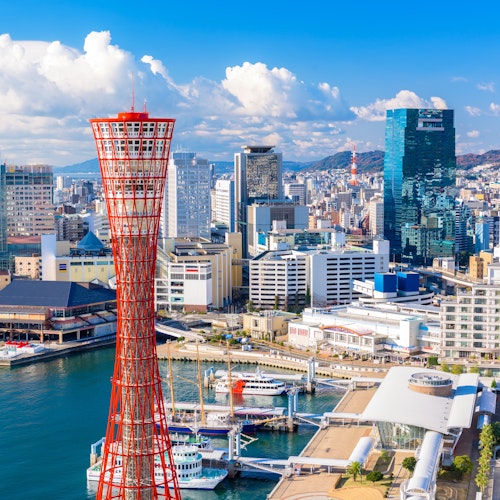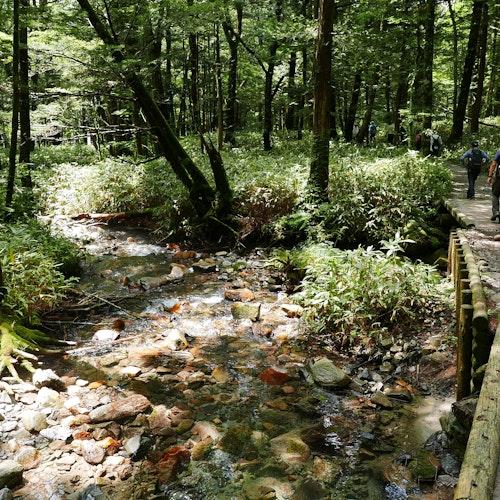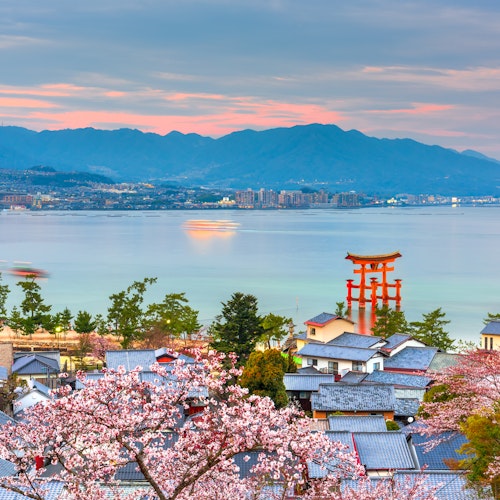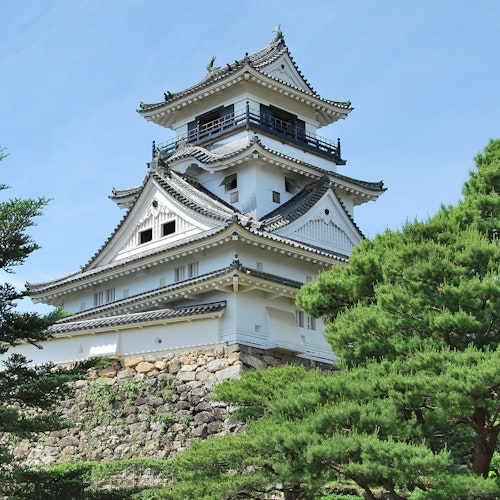探索大阪水族馆海游馆:海洋生物爱好者必看的 10 大展品

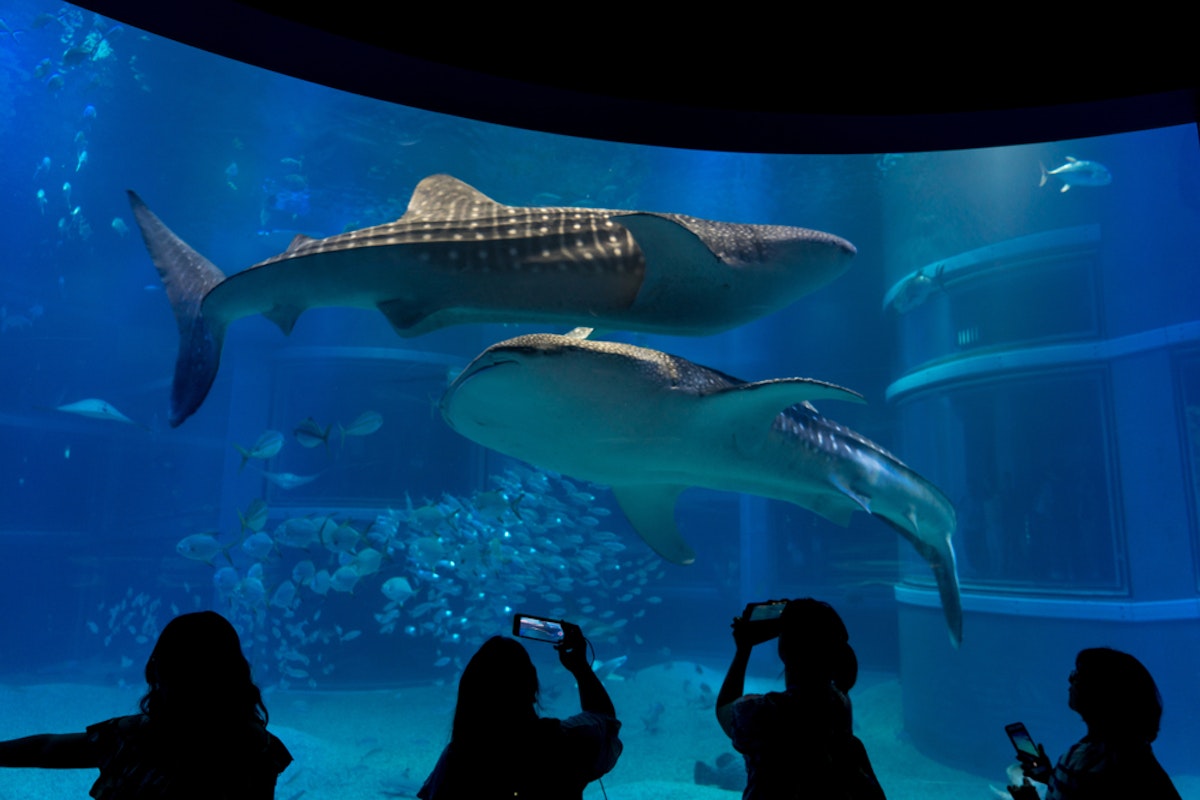
大阪水族馆海游馆是任何对海洋生物感兴趣的人的首选目的地。作为世界上最大的水族馆之一,它提供了从开阔的太平洋到冰冷的北极水域的水下生态系统的壮丽景色。水族馆的亮点是其巨大的中央水箱,是鲸鲨和其他海洋巨人的家园,以及从海獭到水母的各种展品。
每个部分都重建了一个特定的海洋栖息地,让您有机会在与自然家园相匹配的环境中看到动物。海游馆不仅仅是展示,而是了解海洋生物的多样性和重要性。以下是使海游馆值得一游的 10 大展品。
大阪水族馆海游馆必看的展品
1. 太平洋水箱
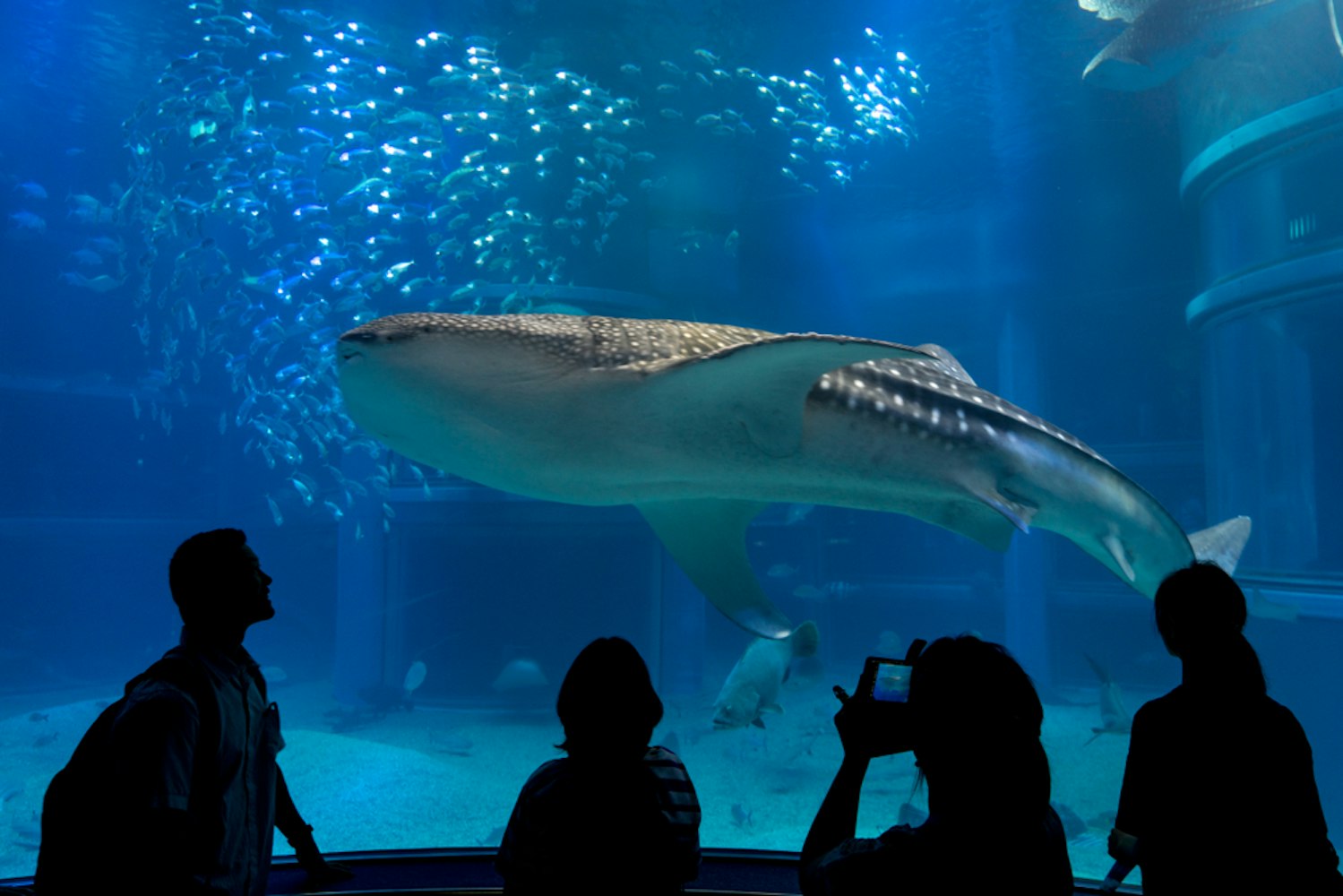
太平洋水槽是海游馆的心脏,也是世界上最大的室内水槽之一。这个水箱深 9 米,可容纳 5,400 吨水,复制了开阔太平洋的一部分,展示了它的宏伟。
这次展览的明星是鲸鲨,这是海洋中最大的鱼。鲸鲨可以长到 12 米长,近距离看到鲸鲨游泳简直令人叹为观止。尽管它们体型庞大,但鲸鲨是温和的滤食性动物,在滑行时通过它们巨大的嘴巴筛选浮游生物。
除了鲸鲨,太平洋水槽还是各种鳐鱼的家园,双髻鲨,以及五颜六色的鱼群,增强了充满活力的水下场景。该设计允许您绕着它走动,从不同的角度看到这些生物,营造出身临其境且令人敬畏的体验。
2. 阿留申群岛
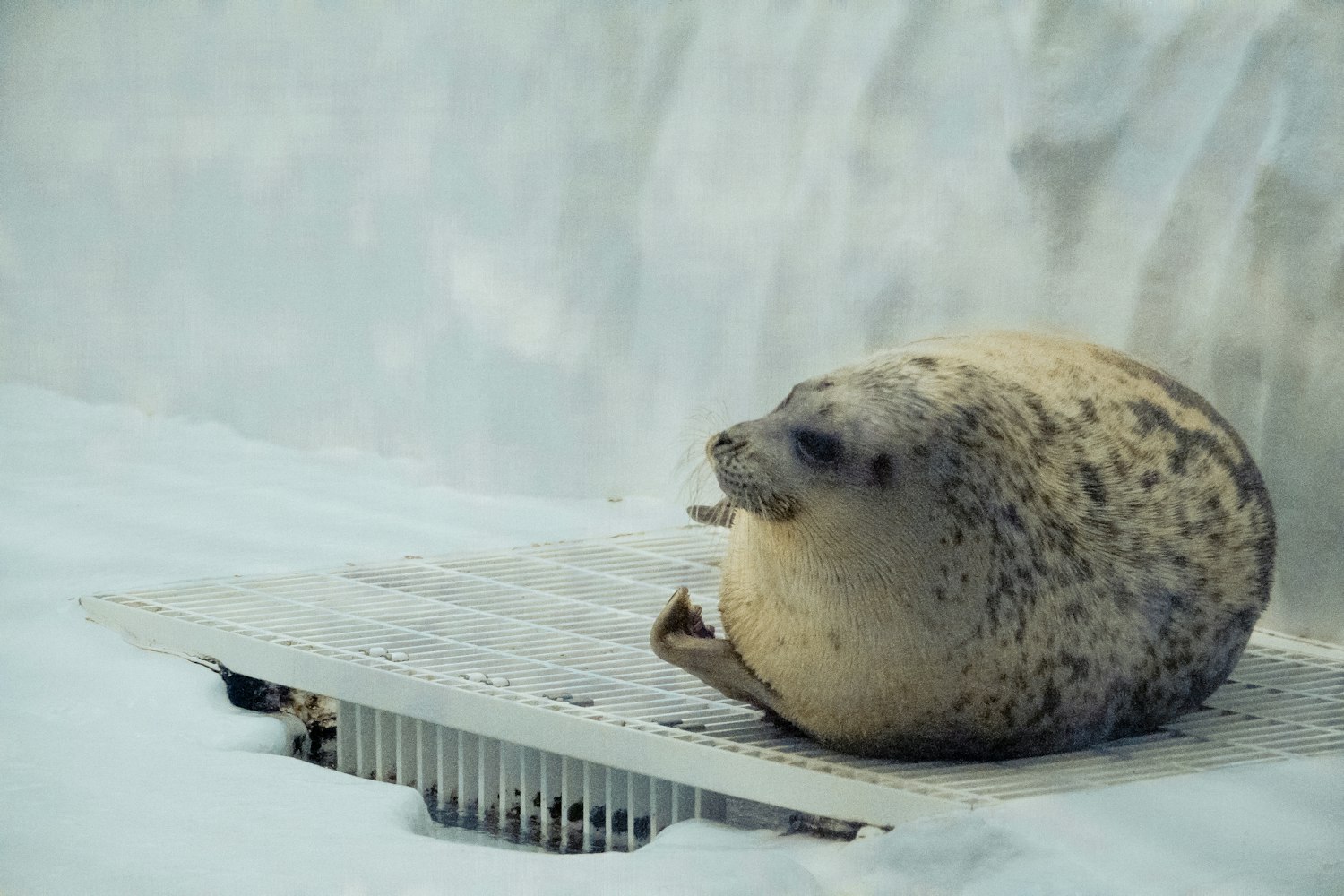
该展览模仿了阿留申群岛的岩石冷水栖息地,阿留申群岛是阿留申群岛,位于阿拉斯加和俄罗斯之间。这里的亮点是海獭,它们以其顽皮的天性和可爱的行为而闻名。海獭是聪明的动物,它们使用石头等工具打开贝壳作为食物。看着它们熟练地打开外壳,证明了它们的适应能力和智慧。
海獭的皮毛也是所有动物中最浓密的,每平方英寸有多达 100 万根毛发,这有助于在冰冷的海水中与它们绝缘。他们花了一天的大部分时间梳理毛发以保持这件厚厚的皮大衣,观察起来很有趣。栖息地的设计以岩石景观和凉爽的海水为特色,让您看到这些动物如何在这样的环境中茁壮成长。
3. 南极洲区
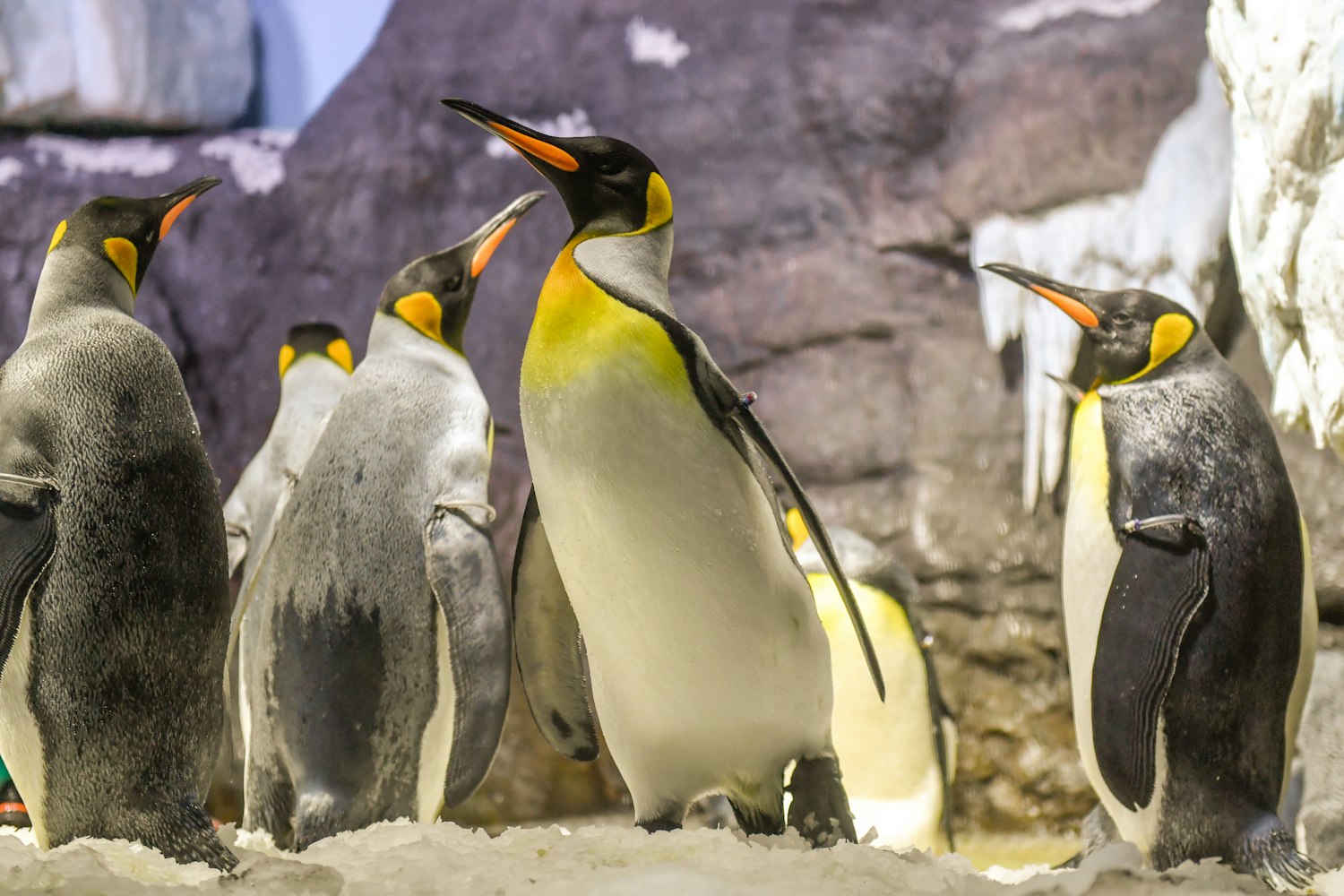
南极洲区 (Antarctica Zone) 带您与企鹅群面对面,这是另一个游客的最爱。海游馆拥有多种物种,包括身高可达 100 厘米的帝企鹅,以及以其眼睛上方醒目的白色斑块而闻名的巴布亚企鹅。企鹅具有独特的适应寒冷温度的能力,它们的高能量游泳表演令人着迷。
在野外,企鹅依靠它们流线型的身体和强大的脚蹼来捕捉鱼、鱿鱼和磷虾。展览的寒冷环境复制了冰冷的南极洲,让企鹅有宾至如归的感觉。看着这些不会飞的鸟儿俯冲和飞镖是一种愉快的体验,并展示了它们在水下所拥有的力量和敏捷性。
4. 日本森林

日本森林展览展示了日本多样化的生态系统,特别是其淡水栖息地。这里的一大亮点是大鲵,这是一种独特的生物,只在日本和中国部分地区的河流中发现。大鲵是世界上最大的两栖动物,身长可达 1.5 米,由于栖息地丧失和污染而濒临灭绝。
该展览还包括其他原产于日本的淡水鱼类和植物物种。宁静的环境、流潺的溪流和茂密的植被让人可以窥见日本的自然美景,让游客欣赏经常被忽视的生物。这个栖息地的设计强调了保护日本独特的生态系统和栖息在其中的物种的重要性。
5. 厄瓜多尔热带雨林
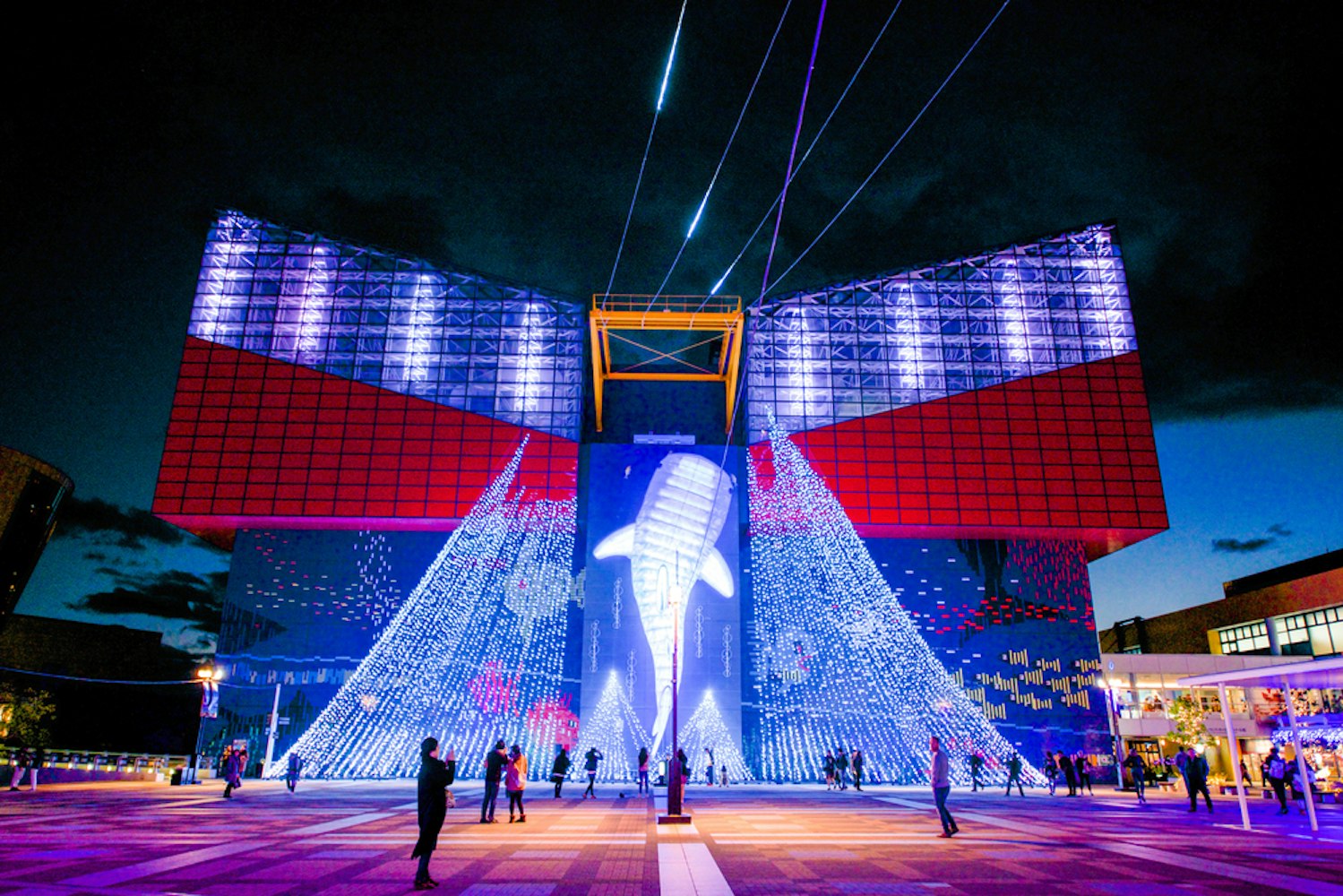
厄瓜多尔雨林展览将热带雨林的温暖和生物多样性带入生活。该地区是凯门鳄的家园,凯门鳄是原产于中美洲和南美洲的小型鳄鱼爬行动物。凯门鳄可以长到 2 米长,以其强壮的下颚和独特的装甲身体而闻名。
另一个受欢迎的地方是水豚,世界上最大的啮齿动物。水豚是群居动物,经常看到它们成群结队地闲逛或在水中畅游。他们以其冷静友好的举止而闻名,由于他们不寻常的外表和社交习惯而广受欢迎。郁郁葱葱的绿色背景充满了热带植物和五颜六色的鱼类,使这个展览成为了解热带雨林生物多样性的充满活力的地方。
6. 大堡礁
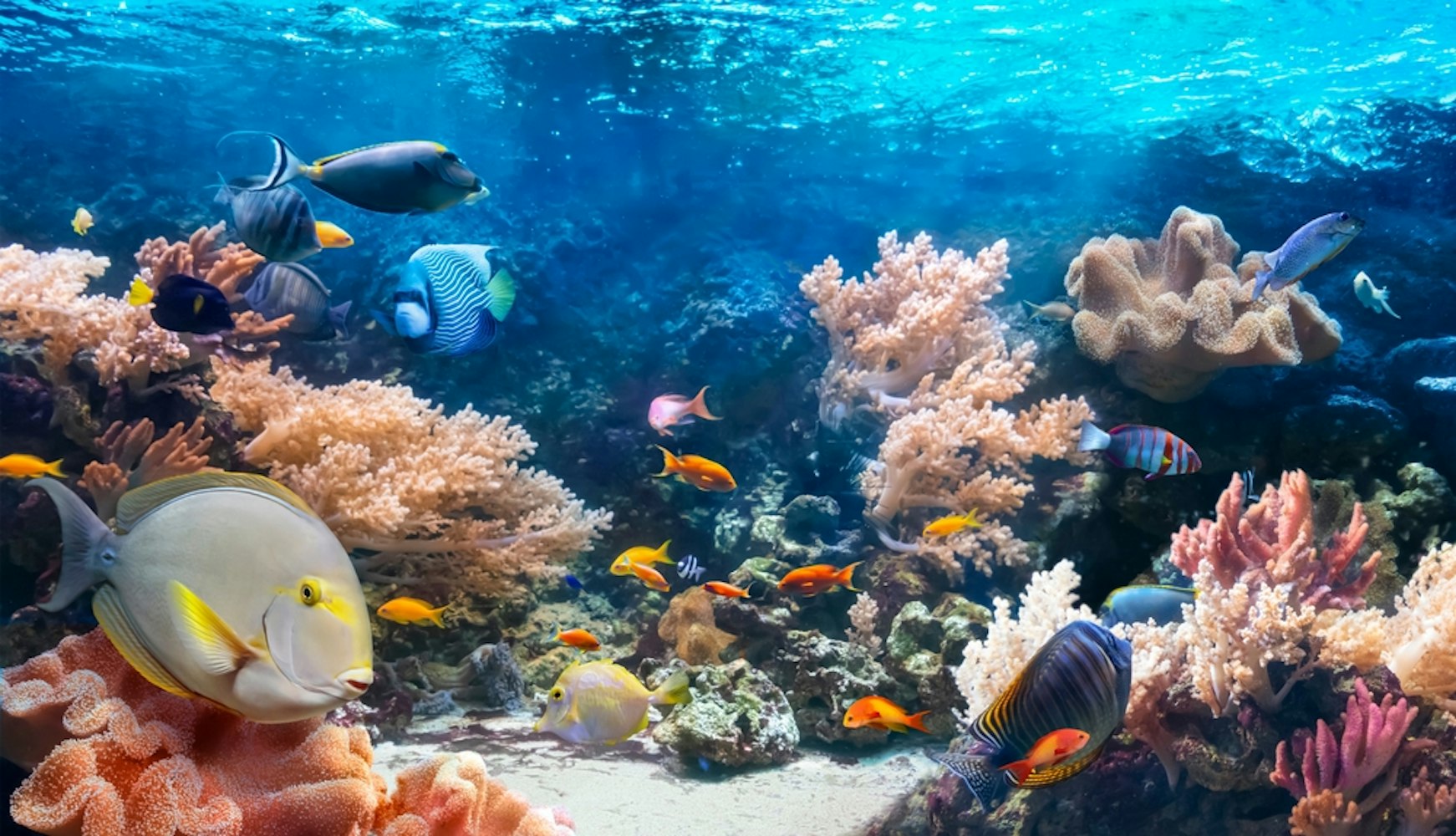
大堡礁 (Great Barrier Reef) 以世界上最大的珊瑚礁系统而闻名,海游馆 (Kaiyukan) 的展览再现了这个水下奇观的一部分。珊瑚礁覆盖的海底不到 1%,但却是大约 25% 的海洋物种的家园,这凸显了它们的生态重要性。在这个展览中,您将看到一系列令人眼花缭乱的珊瑚、海葵和鱼类,它们展示了珊瑚礁的美丽和多样性。
在海葵中找到庇护所的小丑鱼和通过以藻类为食来帮助维持珊瑚礁健康的鲜艳鹦嘴鱼等物种是这里的明星。大堡礁展览让您了解这个脆弱的生态系统及其众多居民,提高人们对保护世界各地珊瑚礁必要性的认识。
7. 塔斯曼海
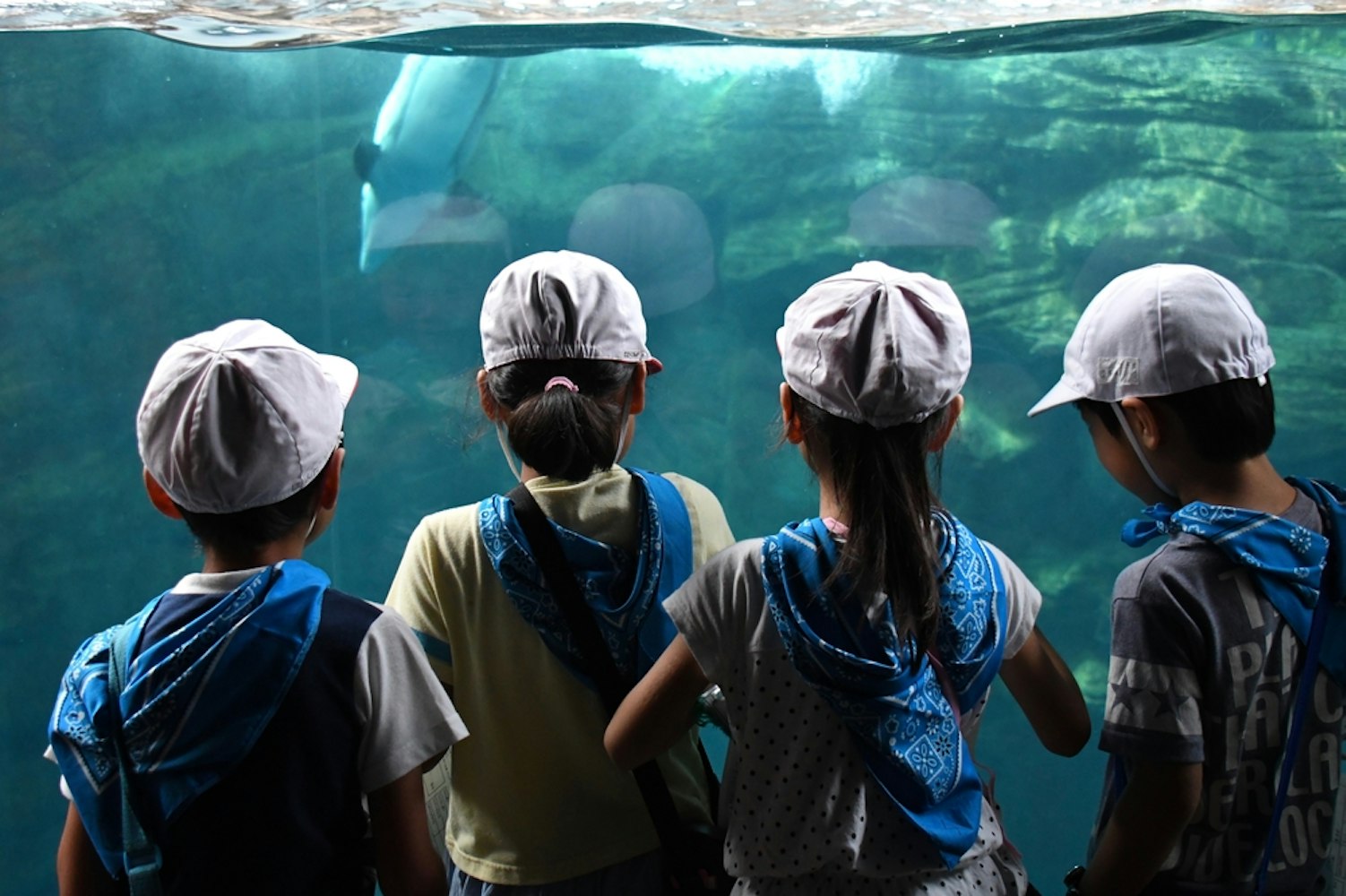
塔斯曼海展览向游客介绍了叶子海龙,这是海游馆最迷人的生物之一。海龙是海马的亲戚,有独特的叶状附属物,使它们能够融入周围环境,类似于漂浮的海藻。这种伪装可以抵御捕食者,帮助它们在澳大利亚南部和西部海岸的自然栖息地中生存。
看海龙在水中优雅地漂流,几乎就像看着一件艺术品栩栩如生。它们游泳速度很慢,但非常娇小和稀有,因此海游馆展示它们的努力有助于提高人们对这种不寻常的海洋生物所面临的挑战的认识。
8. 水母画廊
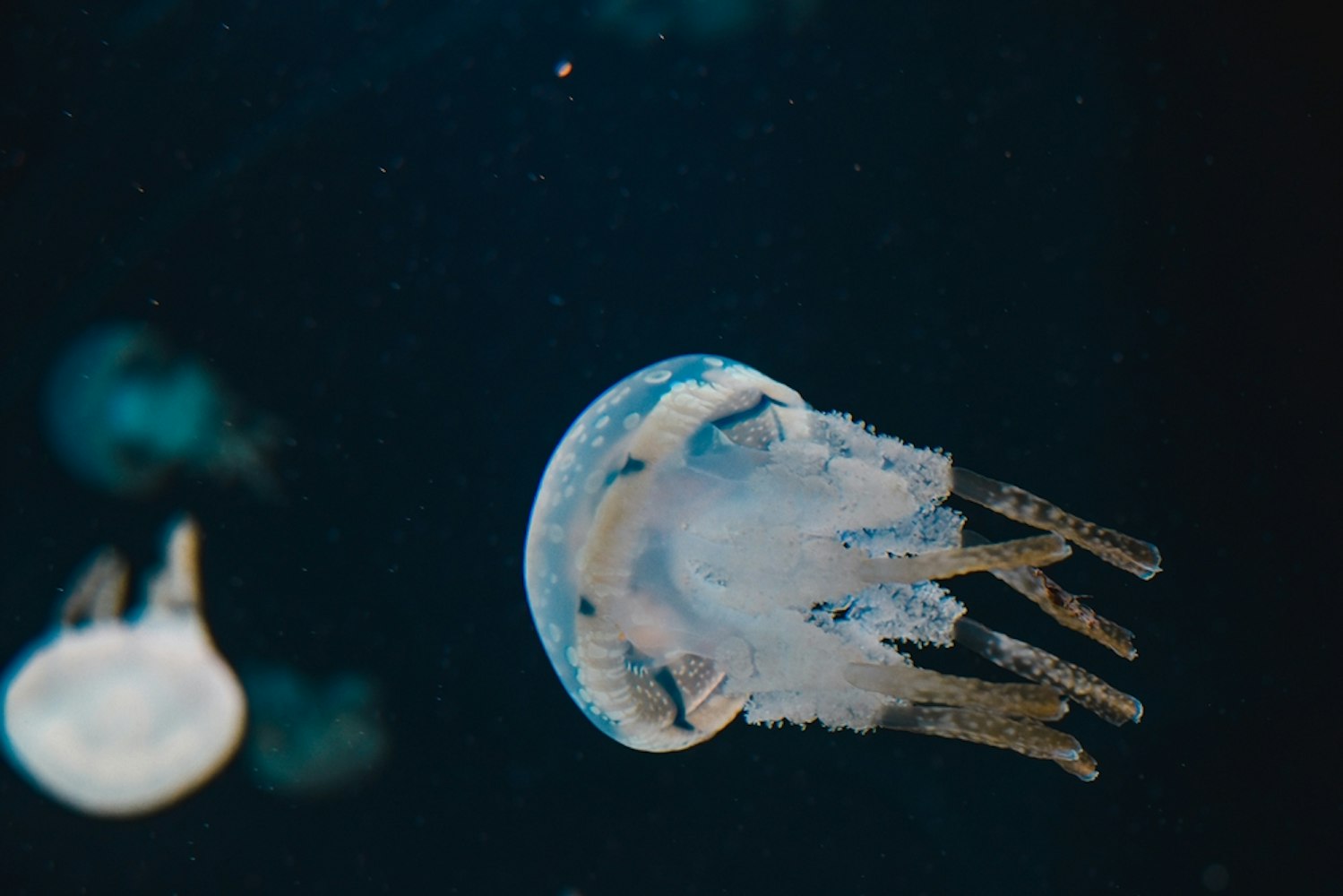
水母是地球上最古老、最简单的生物之一,海游馆的水母画廊展示了它们空灵的美丽,令人着迷。这个展览以多个水箱为特色,每个水箱都有不同的物种,从微小而半透明的月亮水母到更大、颜色更鲜艳的狮鬃水母。
水母具有独特的结构;他们没有大脑、心脏和骨骼,他们随洋流漂流在海洋中。尽管它们很简单,但它们是高效的捕食者,带有刺细胞来捕捉猎物。
这个画廊有一种黑暗而平静的氛围,水母在发光的水槽中被照亮,营造出一种宁静而近乎催眠的氛围。它提醒人们海洋的奥秘以及海洋深处存在的各种生命形式。
9. 北极区
北极区是环斑海豹的家园,它们好奇的面孔和顽皮的滑稽动作使它们成为游客的最爱。这些海豹很好地适应了寒冷的温度,有一层厚厚的脂肪和一层外套,可以帮助它们在冰冷的水中保持温暖。在野外,环斑海豹用它们的爪子在冰上保持呼吸孔,它们用它来呼吸空气。
海豹拥有光滑、流线型的身体,使它们成为出色的游泳者,使它们能够轻松捕捉鱼类,这是它们的主要食物。北极区展览模拟了自然栖息地的冷水和冰冷环境,让游客了解北极海洋动物的挑战和适应能力。
10. 水门
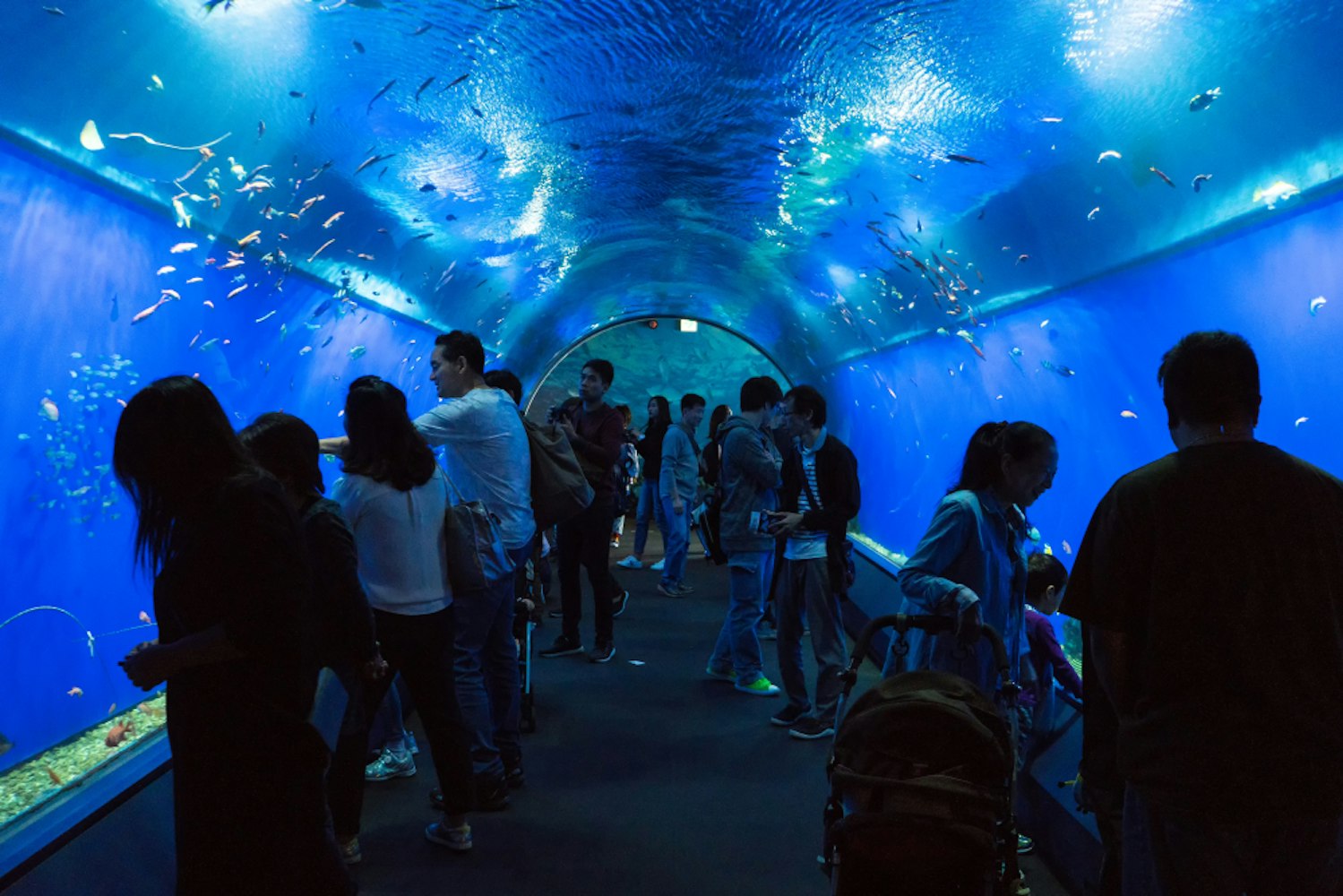
Aqua Gate 是一条水下隧道,是水族馆最具沉浸感的特色之一。穿过 Aqua Gate,您被海洋生物包围,它们在您上方和旁边游动,营造出身处水下的感觉。这条隧道里到处都是黄貂鱼、小鲨鱼和成群结队的充满活力的鱼。
水门的设计让游客可以近距离观察海洋动物的行为和互动,使其成为海游馆旅程中令人难忘的一部分。与这些动物如此接近并看着它们在您周围自由移动的经历有力地提醒着我们海洋生物的复杂性和美丽。
参观大阪水族馆海游馆的实用信息
位置: 水族馆位于 Tempozan Harbor Village 的大阪湾区。
大阪水族馆费用: 成人门票一般在 2,700 日元左右,儿童和老年人可享受折扣票。查看季节性促销或团体折扣。
营业时间: 海游馆的营业时间通常为上午 10:30 至晚上 8:00,但最好查看官方网站,了解因节假日或特殊活动而造成的营业时间是否有任何变化。
可及性: 水族馆完全无障碍,整个建筑群都有轮椅坡道和电梯。
餐饮和纪念品: 游客可以在附近享受各种餐饮选择,以及一家礼品店,提供水族馆主题的纪念品,包括毛绒玩具、钥匙扣和独家海游馆纪念品。
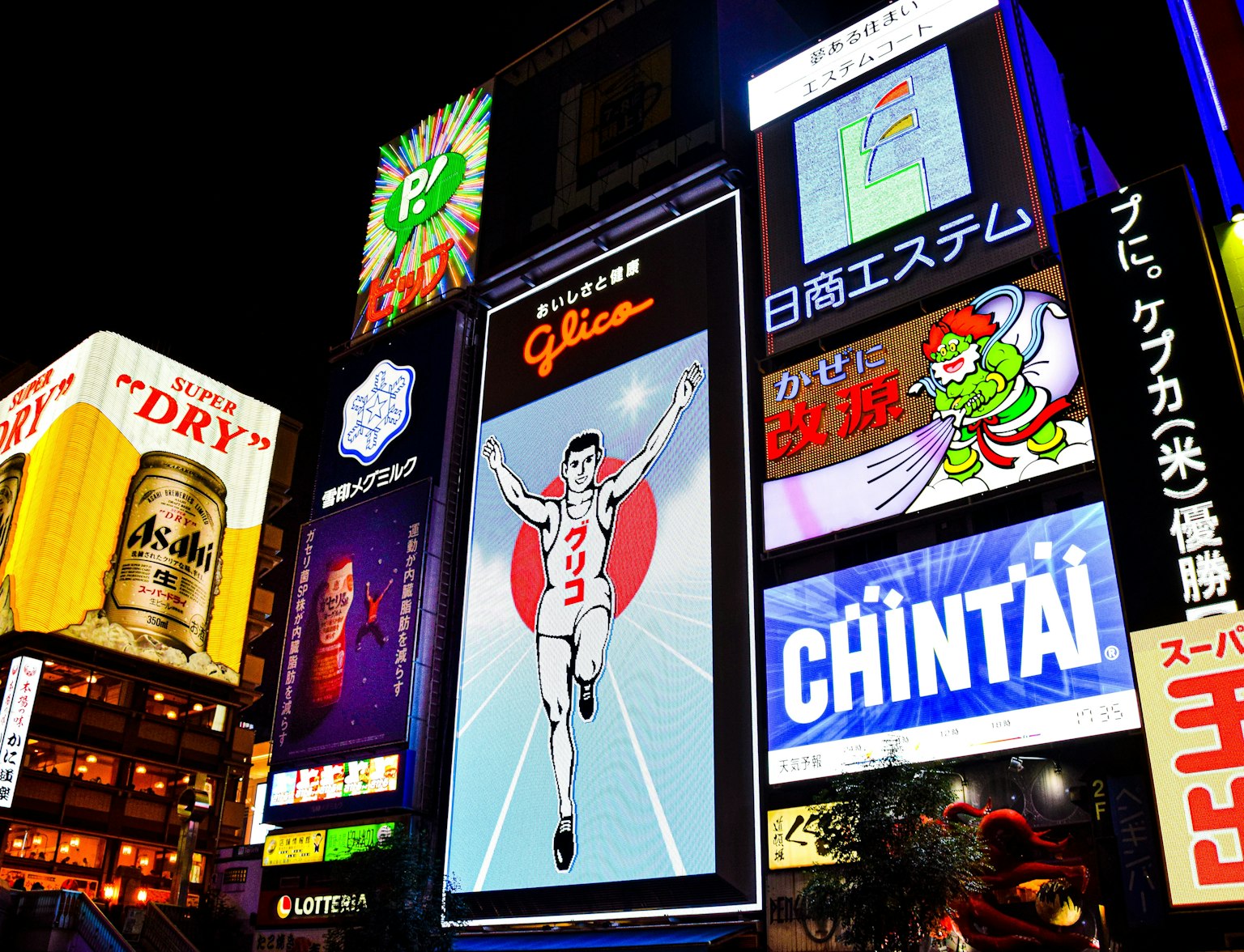
在这个独家全日私人导游中探索现代城市大阪!
最后的亮点:为什么海游馆值得一游
大阪水族馆海游馆提供了一个难得的机会,可以近距离观察各种海洋栖息地和物种,是海洋生物爱好者的必游之地。水族馆拥有精心制作的展品,从巨大的太平洋水箱到水母画廊等独特展品,让人们深入了解世界各地海洋生物的生活和行为。
每个展品都展示了海洋生物的美丽和多样性,营造出既引人入胜又具有教育意义的体验。如果您在大阪,海游馆是一个承诺与海洋奇观难忘相遇的目的地。

通过私家车之旅探索大阪的热门景点。
常见问题
大阪水族馆海游馆以什么着称?
大阪水族馆海游馆 (Osaka Aquarium Kaiyukan) 以世界上最大的水族馆之一及其令人印象深刻的中央水槽而闻名,其中有鲸鲨——是世界上为数不多的可以近距离看到这些巨型水族馆的地方之一。水族馆还设有代表各种海洋栖息地的各种展品,从太平洋到南极,展示了各种各样的海洋生物。
你在 Osaka Aquarium Kaiyukan 花了多少时间?
平均而言,游客会花费大约 2-3 小时探索大阪水族馆海游馆。这样可以有足够的时间欣赏每个展品,观看动物喂食(如果安排),并了解每个栖息地的细节。但是,如果您是海洋生物爱好者,您可能需要预算更多时间来充分享受水族馆所提供的一切。
海游馆有多大?
海游馆占地面积约 26,000 平方米(280,000 平方英尺),多个水箱可容纳约 11,000 吨水。仅中央太平洋水槽就有 9 米深,可容纳 5,400 吨水,是世界上最大的水族箱之一。
世界第二大水族馆是什么?
按水量计算,世界第二大水族馆是美国亚特兰大的佐治亚水族馆。它拥有约 38,000 立方米的水,以其种类繁多的海洋生物而闻名,包括鲸鲨和蝠鲼,类似于大阪的海游馆。
